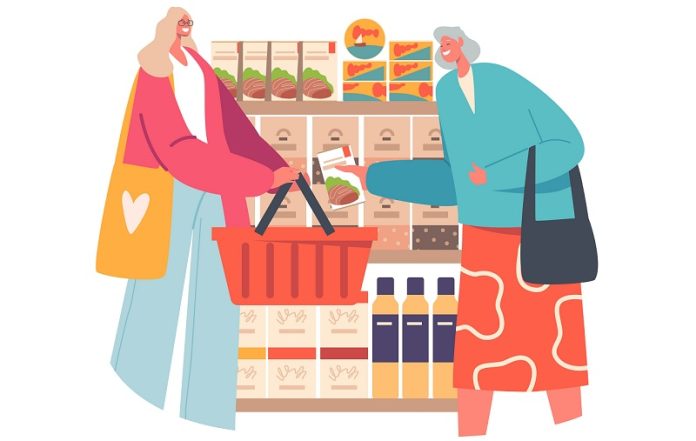
As we get older, simple tasks like getting out of bed or sitting down become harder.
This is often due to a condition called sarcopenia, where our muscles shrink and lose strength as we age.
Staying active and eating well are key to combating this, but many people don’t know what foods can help maintain muscle health as they grow older.
Our bodies get energy from three main sources in food: carbohydrates, fats, and protein.
Protein, which is found in foods like meat, fish, dairy, eggs, and some plant-based options, provides the building blocks (amino acids) to create and repair muscles and other important tissues.
As we age, our ability to digest and use nutrients can decrease. This means older adults need to focus on both eating more protein and ensuring it is high-quality to keep their muscles strong and healthy for as long as possible.
Why Older Adults Need More Protein
Unlike carbohydrates and fats, which can be stored in our bodies, protein cannot be stored. This means we need to eat enough protein every day to give our muscles what they need to stay healthy.
The current recommendation for protein intake is 0.8 grams of protein per kilogram of body weight per day. However, studies show that many older adults aren’t eating enough protein, and experts suggest they need about 50% more (1.2 grams per kilogram) to maintain muscle health.
Focus on Quality, Not Just Quantity
Eating more protein can help reduce muscle loss in older adults, but that’s not always easy for everyone.
Many older people have smaller appetites or dental issues that make it harder to eat enough. A great alternative is focusing on protein quality and spreading protein intake evenly throughout the day.
The quality of protein depends on two things: how many essential amino acids it contains and how well it is digested and absorbed by the body. One essential amino acid, leucine, is especially important for muscle growth. Foods high in leucine are generally better for keeping muscles strong.
There’s growing interest in plant-based proteins for their environmental benefits. Pea protein, for example, contains enough leucine to support muscle building, though we still need more research on its effects in older adults.
Plant-Based Protein for Aging Muscles
A study was conducted to see how different types of protein impact muscle building in older adults.
Thirty-one adults between 60 and 80 years old participated in a dietary trial. During the trial, they were given protein either through food or supplements like whey, pea, or collagen. The results showed that supplements like whey and pea proteins boosted muscle building by nearly 10%.
However, collagen protein, despite its popularity among older adults, had no effect on muscle growth.
This study demonstrated that plant-based proteins like pea protein can be just as effective as animal-based proteins in helping older adults build and maintain muscle.
Debunking Protein Myths
Some people worry that increasing protein intake might harm their health, but the truth is, eating more protein will not cause issues like cancer, kidney problems, or weakened bones.
In fact, eating more high-quality protein, combined with regular physical activity, can help slow muscle loss and improve overall health as we age.
Make Protein a Priority
The benefits of eating more protein go beyond just muscle health. Protein-rich foods also provide essential nutrients like vitamins, minerals, and fiber. They can help you feel full longer, reducing the chance of overeating and weight gain.
To stay strong as you age, aim for 25–40 grams of protein at each meal. Good sources of protein include Greek yogurt, cottage cheese, canned fish, eggs, nuts, and lean meats. You can also snack on protein-rich options to meet your daily needs.
By planning your meals and choosing the right proteins, you can help keep sarcopenia at bay and enjoy a healthier, stronger life.
If you care about nutrition, please read studies about how Mediterranean diet could protect your brain health, and the best time to take vitamins to prevent heart disease.
For more information about nutrition, please see recent studies that olive oil may help you live longer, and vitamin D could help lower the risk of autoimmune diseases.



